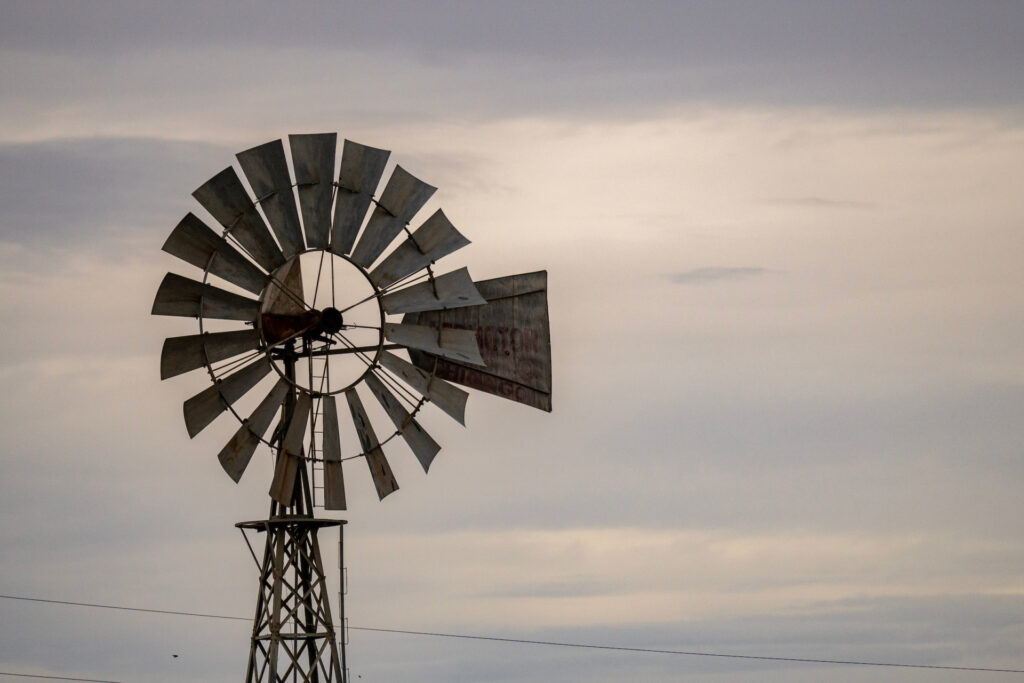Private water well screening set for Nov. 15 in Wimberley
Test results will be explained during follow-up meeting on Nov. 16
The Texas Well Owner Network, in conjunction with the Geronimo and Alligator Creeks Watershed Partnership, is hosting a “Well Educated” water well screening Nov. 15 in Wimberley to give area residents the opportunity to have their well water screened.

Joel Pigg, Texas A&M AgriLife Extension Service program specialist and TWON coordinator in the Texas A&M Department of Soil and Crop Sciences, Bryan-College Station, said the program is for Texas residents who depend on household wells for their water needs.
“The program was established to help well owners become familiar with Texas groundwater resources, septic system maintenance, well maintenance and construction, and water quality and treatment,” Pigg said. “It allows them to learn more about how to improve and protect their personal water resources.”
Well water screening information
Water samples will be screened for contaminants, including total coliform bacteria, E. coli, nitrate-nitrogen and salinity.
Water samples can be dropped off from 8:30-10 a.m. at the AgriLife Extension offices in the following counties: Hays County, 200 Stillwater Road, Suite 102, Wimberley; Guadalupe County, 210 E. Live Oak St., Seguin; Comal County, 325 Resource Drive, New Braunfels; or at the Hays Trinity Groundwater Conservation District office, 14101 U.S. Route 290 W., Suite 212, Austin; or the Barton Springs Edwards Aquifer Conservation District office, 1124 Regal Row, Austin.
There will be a $15 per sample charge for the water screening.
The follow-up meeting to explain the results of the screenings will be at 1 p.m. Nov. 16 at the AgriLife Extension office in Hays County.
The screening is presented by AgriLife Extension and the Texas Water Resources Institute, TWRI, in partnership with the AgriLife Extension offices in Hays, Guadalupe and Comal counties, the Geronimo and Alligator Creeks Watershed Partnership, the Hays Trinity Groundwater Conservation District and the Barton Springs Edwards Aquifer Conservation District.
Sampling instructions
Area residents wanting to have their well water screened must pick up a sample bag, bottle and instructions from the AgriLife Extension office or the groundwater conservation district office.
“It is very important that only sampling bags and bottles from the AgriLife Extension office or GCD office be used and all instructions for proper sampling are followed to ensure accurate results,” Pigg said.
Private water wells should be tested annually, he said. The samples will be screened for contaminants, including total coliform bacteria, E. coli, nitrate-nitrogen and salinity.
Pigg said it is extremely important for those submitting samples to be at the Nov. 16 follow-up meeting to receive results, learn corrective measures for identified problems and improve their understanding of private well management.
Well water contaminants, concerns
Pigg said research shows the presence of E. coli bacteria in water indicates that waste from humans or warm-blooded animals may have contaminated the water. Water contaminated with E. coli is more likely to also have pathogens present that can cause diarrhea, cramps, nausea or other symptoms.
The presence of nitrate-nitrogen in well water is also a concern, and water with nitrate-nitrogen at levels of 10 parts per million is considered unsafe for human consumption, he said.
“These nitrate levels above 10 parts per million can disrupt the ability of blood to carry oxygen throughout the body, resulting in a condition called methemoglobinemia,” Pigg said. “Infants less than six months of age and young livestock are most susceptible to this.”
Salinity, as measured by total dissolved solids, will also be determined for each sample, he said. Water with high levels may leave deposits and have a salty taste. Using water with high levels for irrigation may damage soil or plants.
To learn more about the programs offered through the network or to find additional publications and resources, visit twon.tamu.edu. For more information, contact Pigg at 979-321-5946 or [email protected] or Annalee Epps, AgriLife Extension watershed coordinator, at 979-321-5921 or [email protected].
Funding for the Texas Well Owner Network is through a Clean Water Act section 319(h) nonpoint source grant provided by the Texas State Soil and Water Conservation Board and the U.S. Environmental Protection Agency. The project is managed by TWRI, part of Texas A&M AgriLife Research, AgriLife Extension and the Texas A&M University College of Agriculture and Life Sciences.





